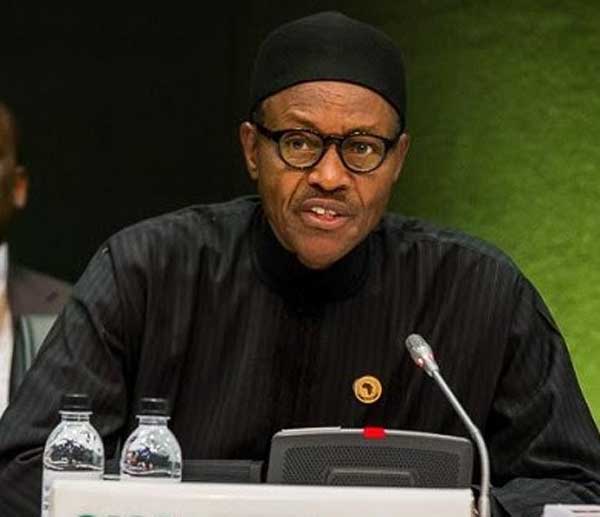President Muhammadu Buhari on Monday in Abu Dhabi, the United Arab Emirates (UAE), listed ways by which the African continent is being affected by climate change, even as he called for greater global cooperation against the devastating effects of the phenomenon in order to avert disaster for the human race in the 21st century.

Addressing the opening of the 2016 World Future Energy Summit, President Buhari reaffirmed Nigeria’s readiness to work with the UAE and rest of the world in a collective effort to mitigate the effects of climate change.
He said: “Africa is already suffering from the consequences of climate change, which include recurrent drought and floods. In Nigeria, the drastic drying up of the Lake Chad to just about 10% of its original size, has negatively impacted on the livelihood of millions of people, and contributed in making the region a hot bed of insurgency.
“Desert encroachment in Niger, our northern neighbour and in far northern Nigeria, at the rate of several hundred meters per annum, has impacted on the existence of man, animal and vegetation, threatening to alter the whole ecological balance of the sub-region.
“In the middle and southern part of Nigeria, land erosion threatens farming, forestry, town and village peripheries and in some areas major highways.
“Constant and abrupt alteration between floods and droughts prove that climate change is real and therefore a global approach and cooperation to combat its effects are vital if the human race is not to face disaster in the 21st century.”
Noting that the summit was taking place soon after the United Nations Conference on Climate Change held in Paris late last year, President Buhari praised the UAE for consistently supporting international action on climate change.
“We see Abu Dhabi as a dependable partner in the collective effort to manage climate risks including the attainment of the sustainable development goals by 2030.
“Thank you, Abu Dhabi, for consistently continuing to support international action in this sphere.
“We appreciate your immense contributions worth hundreds of millions of dollars in Energy aid to developing countries,” the President said.
President Muhammadu Buhari said Monday in Abu Dhabi that Nigeria has made very significant progress towards ending the Boko Haram insurgency since his assumption of office on May 29 last year.
In a related development, President Buhari told the Secretary-General of the United Nations, Ban Ki-moon, on the sidelines of the Summit that, in collaboration with the Multinational Joint Task Force, the Nigerian Armed Forces have driven the terrorist group from Nigerian territory into “fall-back positions”.
“They are currently not holding any territory today as we speak, ” the President informed Ki-moon, adding that Nigeria would persistently pursue global action to reverse the drying up of Lake Chad and save the lives of those who depend on it for survival.
“With all due respect to our neighbours, Nigeria has been worst hit by the drying up of the Lake Chad and we are hoping that the global community will support the process of halting the drying up of the lake, ” President Buhari said.
Ki-moon commended the President for his courage in fighting terrorism and corruption. He added that Nigeria has made amazing progress against terrorism since President Buhari assumed office, while the President’s war against corruption has boosted global confidence in the Nigerian economy.
He urged President Buhari to integrate the United Nations Sustainable Development Goals (SDGs) into Nigeria’s economic and environmental vision.
